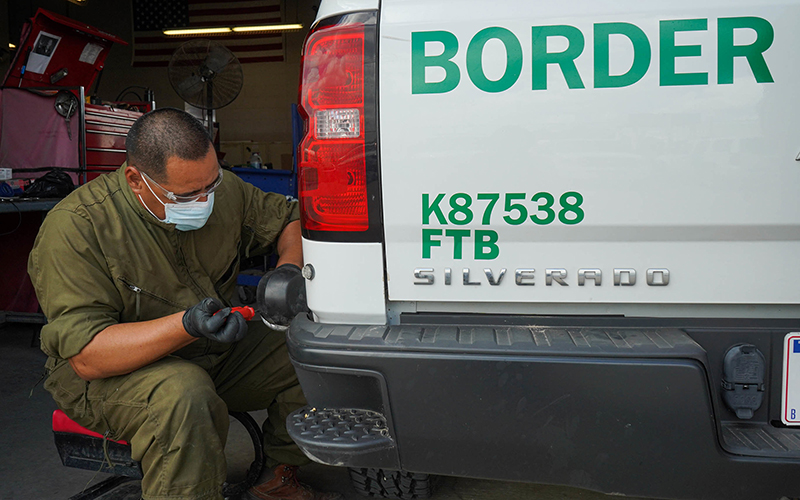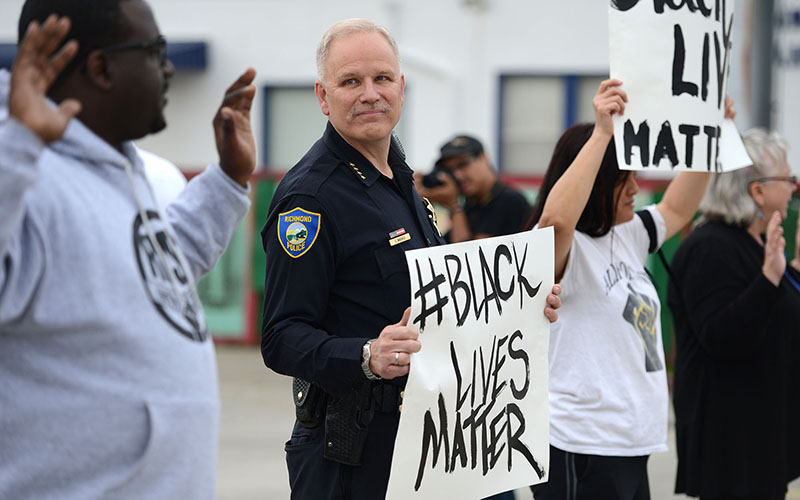WASHINGTON – Gov. Doug Ducey declared a state of emergency Tuesday and ordered 250 Arizona National Guard members to assist state and local law enforcement agencies at the border, as migrant apprehensions rise to their highest number in years.
More than 569,000 migrants were apprehended in the first six months of this fiscal year, and more than 49,000 of them were unaccompanied minors, who have overwhelmed federal facilities designed to house and process them. It’s a surge Republicans, including Ducey, have blamed squarely on President Joe Biden’s decision to reverse Trump-era immigration policies.
“To this day, there has been no action from this administration, and it doesn’t look like they are going to act any time soon,” Ducey said in a statement announcing the deployment. “If this administration isn’t going to do anything, then we will.”
Requests for comment from the White House were not immediately returned Tuesday, but Rep. Raul Grijalva, D-Tucson, said Arizona would be better served if Ducey worked with the Biden administration on the problem. Pima County Sheriff Chris Nanos said Ducey’s move “smells like typical politics.”
“I work closely with the Border Patrol director in Tucson, and he did not indicate we had any problems,” Nanos said.
Ducey said he will allocate $25 million in initial funding for the deployment, in which guard members will help with detention center medical operations, install and maintain border cameras and analyze satellite imagery for trends in smuggling corridors.
The announcement did not say how long the deployment would last and National Guard officials were not able to provide details Tuesday. But Brig. Gen. Kerry L. Muehlenbeck, the recently appointed adjutant general of the Arizona National Guard, said the troops were ready to serve.
“The dedicated members of the Arizona National Guard stand ready to support our local law enforcement partners as they address border security, just like we have done for many years when called upon,” she said in a statement released by Ducey’s office.
While Nanos does not see a need for troops at the border, Yuma County Sheriff Leon Wilmot welcomed the help.
“By deploying National Guard assets, the governor will allow me to deploy more first responders to mission-critical tasks where we will work side by side with our federal partners to target, apprehend and prosecute transnational criminal organizations,” Wilmot said in a statement.
While not a border sheriff, Maricopa County Sheriff Paul Penzone agreed, in a statement released by the governor’s office, that “availability of Arizona National Guard resources in support of law enforcement demands is an asset for our depleted resources.”
But Grijalva said militarizing the border with the guard troops is not the answer, calling it a “disgrace.”
“We need to stop meeting asylum-seeking children and families with guns and troops and instead, direct all resources needed at the border to localities and nongovernmental organizations to adequately assist asylum seekers,” Grijalva said in a statement.
“This troop deployment is purely political and does nothing to address the issues at hand,” Grijalva said. “It will not solve the backlogs, will not improve the care of unaccompanied minors, and will not help border communities.”
The Biden administration insists that the southern border is closed and that most migrants who show up there are turned back under regulations aimed at stopping the spread of COVID-19. But unaccompanied minors and some families are allowed in to the U.S. while their claims are processed, and surges in those groups have overwhelmed the capacity of the departments of Homeland Security and Health and Human Services to handle them.
In response, Biden has tapped Vice President Kamala Harris to take control of the surging numbers, and the administration has outlined plans, including investments to improve conditions in Central American countries, aimed at encouraging people to stay in their home countries.
But those policies have yet to pay off, and Cochise County Sheriff Mark Dannels said in a statement that help is needed in the border towns now.
“We welcome immigrants with open arms – but it needs to be done legally and orderly to ensure we are protecting our communities, state and nation,” Dannels said in the governor’s statement.
But from where he sits in Pima County, Nanos said those working the border are doing their jobs well and he is not sure what there will be for the guard to do.
“As far as immigration issues go, that’s Border Patrol and Customs job, and I think they are doing a fine job with it,” he said.


